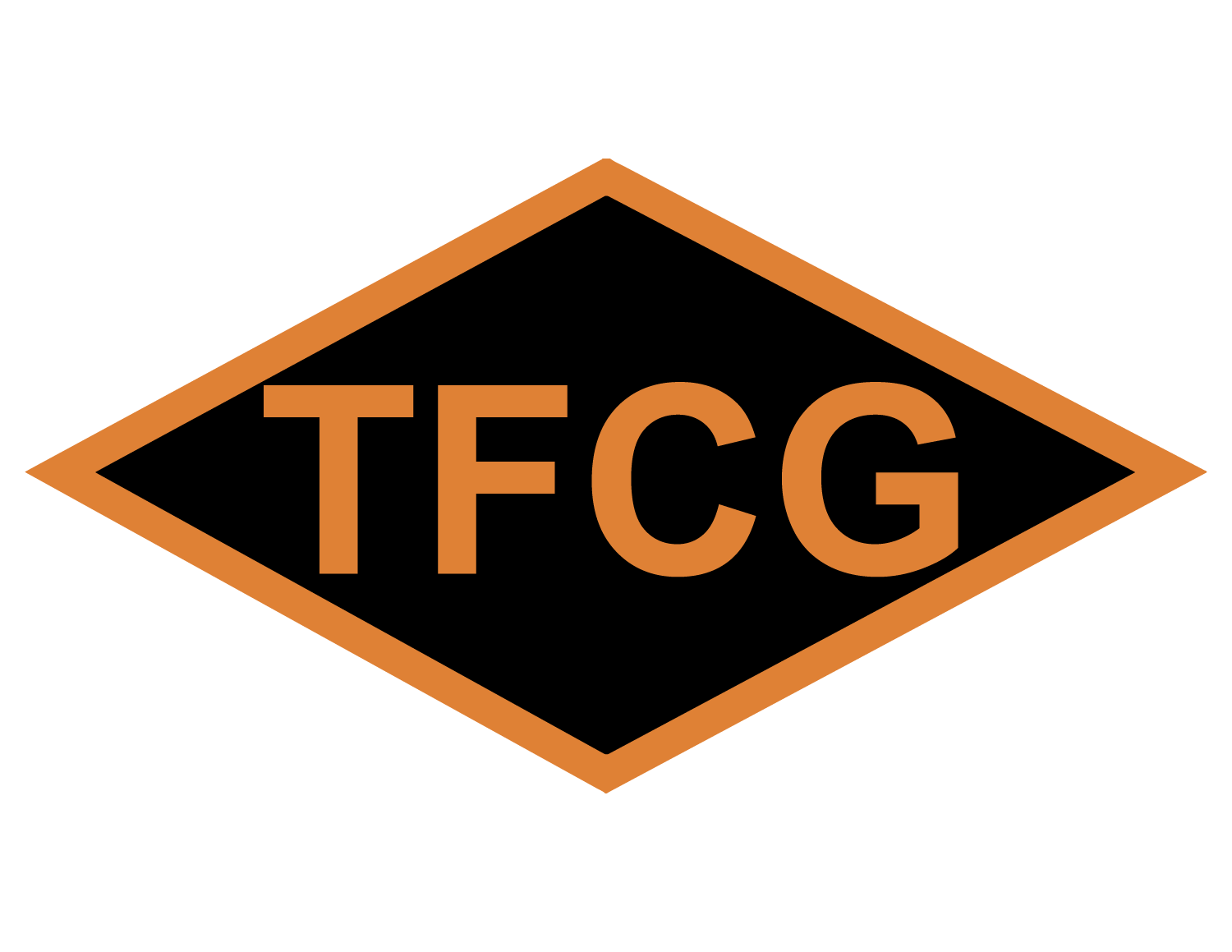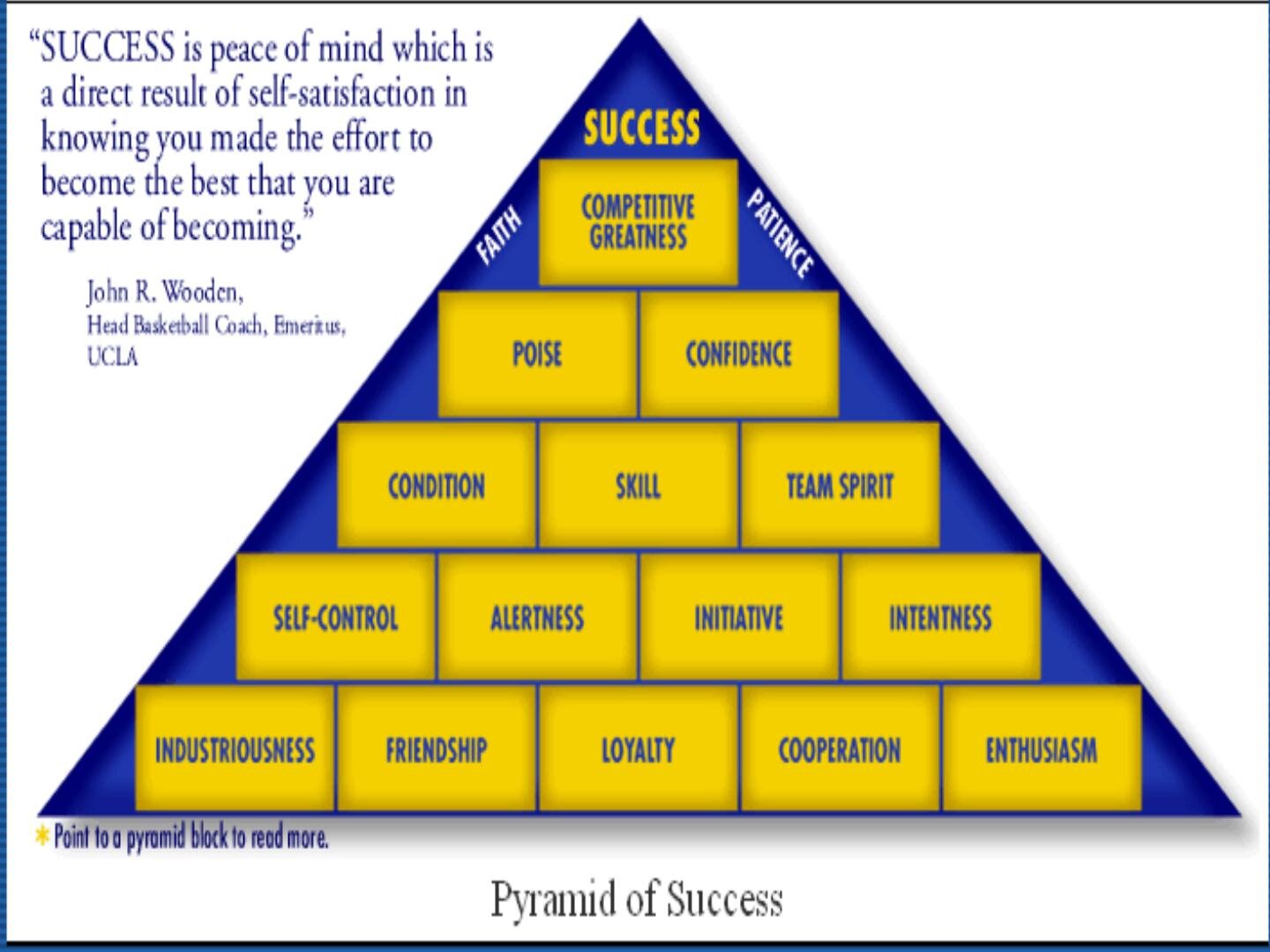John Wooden’s Pyramid of Success (#149)
John Wooden was the men’s basketball coach at the University of California at Los Angeles. His teams won 10 NCAA National Championships in the space of 12 years, including 88 straight games. He was named the coach of the century by ESPN. John Wooden ended his UCLA coaching career with a 620–147 overall record and a winning percentage of .808. I talked about Coach Wooden’s leadership lessons in a recent article and what made him a great coach here.
One thing I didn’t mention in the other articles was Wooden’s work on the characteristics and traits that help define a successful person. After decades of work, in 1948, he created the iconic triangular picture and named it the “Pyramid of Success.” The Pyramid of Success wasn’t about basketball, though. The life tools and principles identified in the Pyramid of Success represented a path to becoming a better person. There are some cross-overs between Wooden’s Pyramid and my ideas from my book Grow Your Grit (available for order here). I’ll highlight a few of them as I examine the 15 building blocks in Wooden’t Pyramid.
John Wooden’s Pyramid of Success — for more go to https://www.thejohnrwoodencourse.com/
In Season One of Ted Lasso, Coach Lasso puts a framed copy of Wooden’s Pyramid up on his office wall. It wasn’t just for the show, however. Jason Sudeikis loves Wooden’s Pyramid. In a recent interview, he talked about how he would use the pyramid when he was teaching improv comedy classes, saying, "I would bring in laminated copies like a freaking PE teacher and diagram on them with a dry erase marker." I’m sure you will like it as much as Jason Sudeikis likes it.
The Fifteen Traits in the Pyramid of Success
The John Wooden’s Pyramid of Success is a framework of successful behaviors. From the bottom to the top, they are:
Industriousness — Industriousness is one of the cornerstones of the Pyramid. Industriousness means hard work. Very hard work. There is no substitute for very hard work when it comes to success. I discuss more ideas on hard work in my post on Perseverance.
Friendship — Two aspects of friendship are respect and camaraderie. Friendship is about building a community around you. A sense of belonging is needed for all humans to feel fulfilled. Treat people with respect and constantly look for the good in others.
Loyalty — Trust is the key to loyalty. When your team trusts you, they are more loyal to you and your organization.
Cooperation — Cooperation means sharing ideas, information, responsibilities, creativity and tasks. Cooperation is a priority of good leadership and great teams.
Enthusiasm — Enthusiasm is the other cornerstone of the pyramid. Enthusiasm means making sure you have a passion for what you're doing, or at the very least, a passion for doing the job in front of you correctly. I discuss more about this in my post on Drive.
Self-control — Self control involves controlling yourself in all areas by avoiding temptations, avoiding emotionalism, and avoiding peaks and valleys of effort.
Alertness — Alertness means being aware of your surroundings and being willing to learn from them at all times. More importantly, having your eyes open to new opportunities enables you to seize them.
Initiative — Failure to act is often the biggest failure of all. Initiative is the ability to act. Simple as that. You must prepare thoroughly in all ways. If you have done that you must then summon the wherewithal to apply Initiative.
Intentness — It is the ability to stay the course even when that course is most difficult and the obstacles seem insurmountable. You do not quit: Intentness. Be persistent. Be determined. Be tenacious. Be unrelenting. The road to achievement is rocky, hard, and long. Things easily achieved are rarely long-lasting or significant. I discuss more ideas on intentness in my post on Perseverance.
Condition — Condition has three legs — mental, moral, and physical condition. I talk about this more in my discussions on Building Resiliency.
Skill — Skill is at the center of the pyramid. At its essence, skill means knowing your job and mastering the details.
Team Spirit — Team spirit is selflessness which is the opposite of selfishness. Team spirit means that one is eager to sacrifice personal glory or gain for the greater good, namely, the welfare and success of your organization, your team, your group.
Poise — Poise means holding fast to your principles and beliefs and acting in accordance with them regardless of how bad (or good) the situation may be. Know who you are and be true to yourself in spite of the chaos around you.
Confidence — True abiding confidence is earned through tenaciously pursuing and attaining those skills that allow you to reach your own level of competency; that is, excellence. There is a lot of commonality between confidence and courage.
Competitive Greatness — At the top of the pyramid is competitive greatness. Competitive greatness is having a real love for the hard battle, knowing it offers the opportunity to be at your best when your best is required. Keep giving your best and inspire your team to greatness.
More on Coach Wooden and Ted Lasso
Liked this post? Then check out these similar ones:
Leadership Lessons from John Wooden
Leadership Lessons from Ted Lasso, Season 1
Leadership Lessons from Ted Lasso, Season 2
Interested in improving your leadership skills and accomplishing your goals? Let's work together to make sure your personal purpose, goals, and perseverance are aligned and you are the best leader you can be. Hit one of the buttons below to see if Executive Coaching using the Wooden Pyramid or a Keynote Speech on the Wooden Pyramid is right for you or your team.
Conclusion
In the meantime, go on the offense and use the ideas in John Wooden’s Pyramid of Success to make you a better person in 2023.


